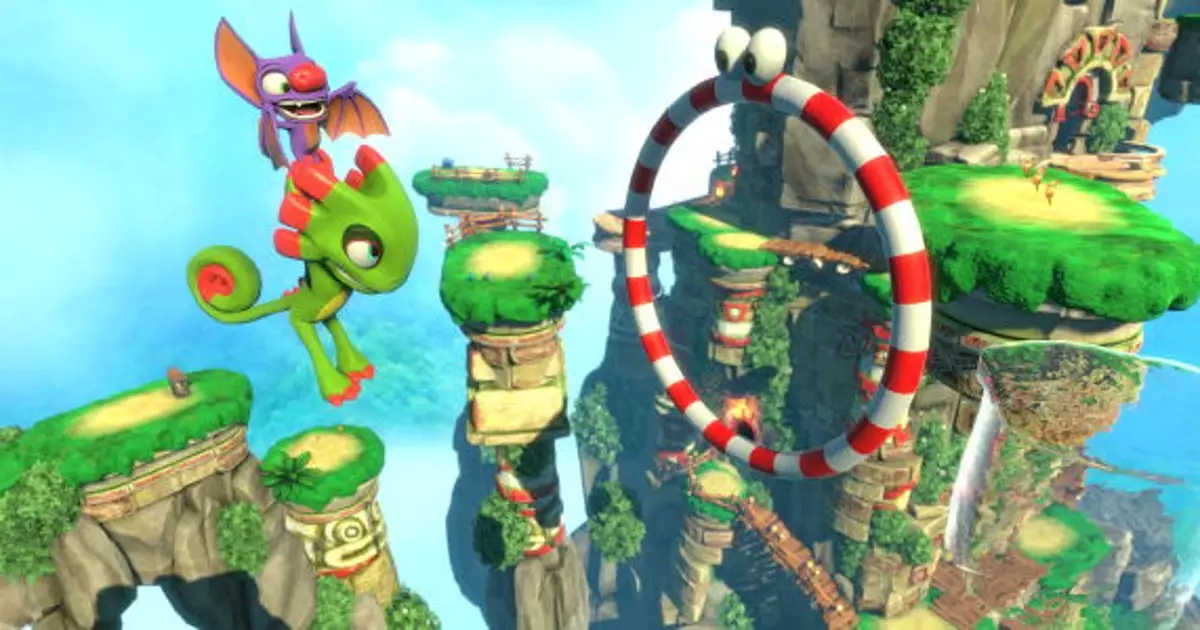The gaming industry is in a state of flux, as exemplified by the recent layoffs at Playtonic, a developer cherished for its whimsical platformers. The studio, famous for reviving the spirit of classic mascot-driven titles, is now grappling with the seismic shifts that have radically transformed how games are created and financed. This situation reflects not only Playtonic’s story but also that of many developers who find themselves navigating this unpredictable landscape. It begs the question: what does this mean for the future of gameplay and creativity itself?
Peculiar Challenges and Profound Changes
Playtonic’s announcement regarding layoffs raises important inquiries about what constitutes the “profound changes” they refer to. Is it the skyrocketing costs associated with game development? Are we witnessing the unabated rise of successful gaming models like live service games monopolizing both financial and creative resources? Or perhaps Playtonic simply finds itself battling dwindling interest in the classic genre it so ardently represents. Regardless of the specific catalysts, the realities are stark: talented individuals—game designers, artists, and producers—are now left searching for new opportunities, and the community is poorer for it.
This tumultuous transition is indicative of a broader crisis affecting various studios across the industry. Playtonic’s gentle handling of this issue is commendable compared to other publishers’ cold, corporate speak; however, it leaves fans and industry watchers craving clarity. Hearing about layoffs often evokes a sense of dread, not just for those directly affected but for the entire gaming ecosystem.
The Disconnect Between Creativity and Commerce
Playtonic has been a beacon of creativity since its inception in 2014, founded by alumni of the iconic Rare studio. They carved a niche with titles like “Yooka-Laylee,” which sought to capture the essence of childhood gaming nostalgia. Yet, despite successfully rekindling that magic, the anticipated success eluded them. Critics argued the title didn’t innovate enough to stand out, while others may view it as merely a facsimile of its predecessors. The reality is that the landscape in which Playtonic operates is becoming increasingly unforgiving.
Despite early success with their love-letter to platformers, the industry pivoted dramatically during and after the pandemic. The surge in gaming during lockdowns led to explosive growth for many companies; yet, as real-life constraints returned, the same entities found their inflated expectations crashing down. Playtonic, amid these turbulent tides, now faces the necessity of adaptation—a poignant reminder that commercial success does not always equate to artistic freedom.
The Human Element of Industry Decisions
In the wake of the announcement, Playtonic’s brand manager, Anni Valkama, took to LinkedIn, not just to detail the layoffs but to advocate for those affected. She emphasized that the departing individuals are the type of talent that any organization would be lucky to have. Her heartfelt acknowledgment of their contributions transcends the corporate lingo often associated with layoffs, bringing a human touch to what can feel like impersonal decisions.
It is this dedication and artistry that frequently goes unnoticed in broader discussions about company restructuring. The excision of seasoned developers cannot be understated; it represents a loss of creative vision and institutional knowledge that can reshape the very foundations of gaming experiences. A call for empathy rings clear in these moments, as these individuals are much more than empty statistics.
Looking Towards an Uncertain Future
The unfolding saga of Playtonic is a microcosm of the gaming industry’s broader struggles with financial sustainability and creative integrity. While their statement shrouded the reasons behind the layoffs in ambiguity, the very essence of a creative studio is at stake. The need for an adaptive approach—where innovation thrives despite economic constraints—becomes imperative.
Yet, if the gaming community can rally behind quality creatives—fueling their talent into new ventures and projects—there lies potential for refreshing narratives and experiences. Playtonic’s journey illustrates the pitfalls of an industry in transition, but it also highlights the resilience of brilliant minds ready to shape the future of interactive entertainment. The question lingers: how will the industry adapt, and what stories will emerge in its wake?

